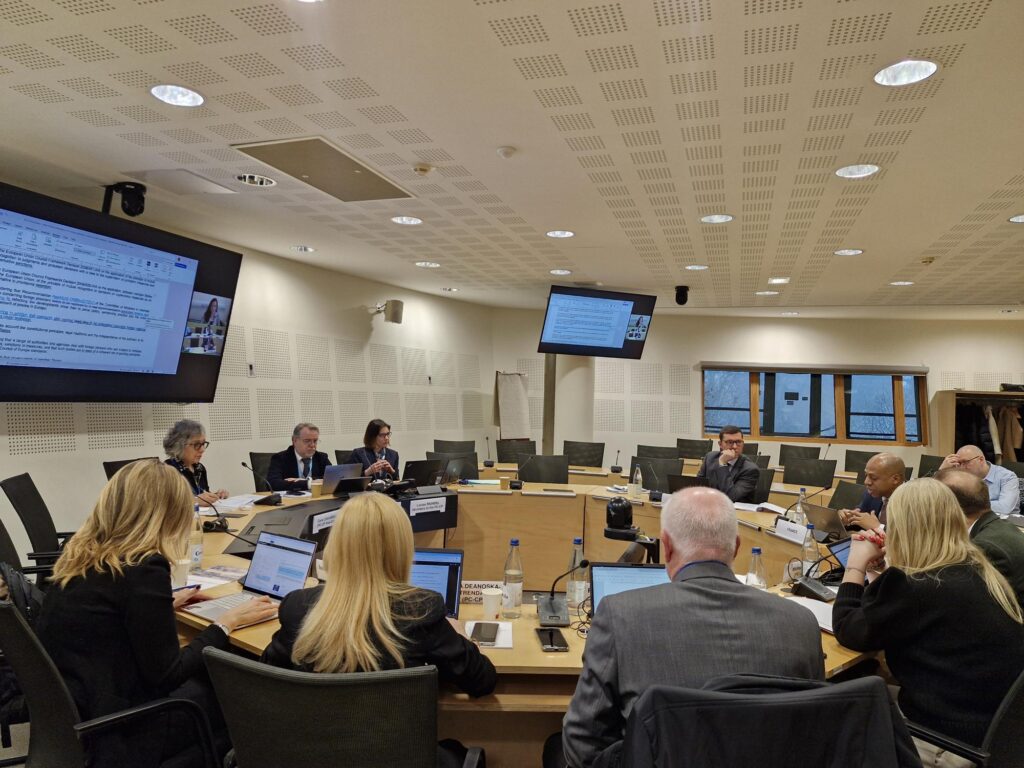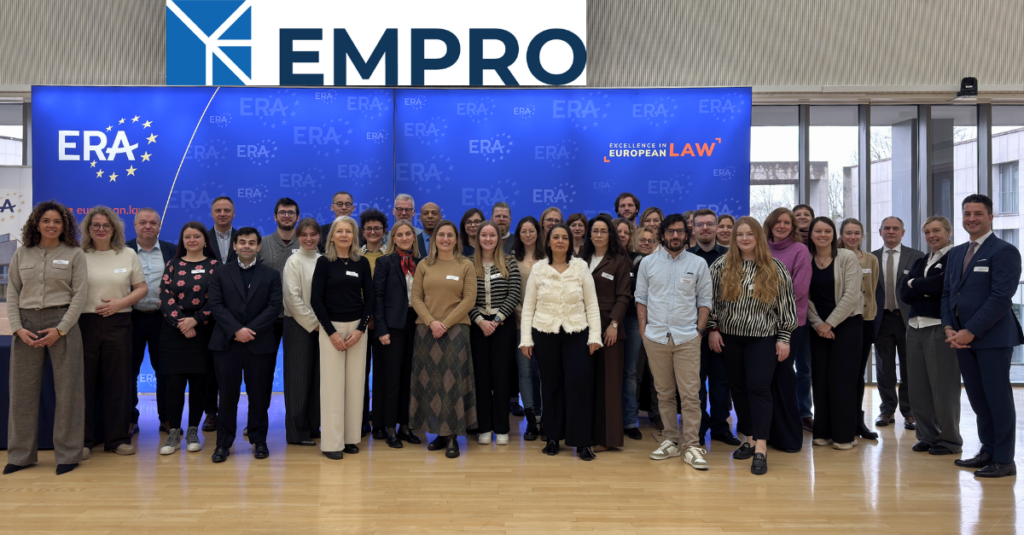Previous Article
News
Dutch Suspects of Terrorist Activity: A Study of Their Biographical Backgrounds Based on Primary Sources
European countries had and have to deal with a lot of terrorist attacks in the last couple of years. It is alarming that some of the most successful terrorist were already on the radar of the intelligence agencies. Predicting who will engage in terrorism is hampered by the absence of a typology of terrorists. Present and historic research agree that terrorists differ greatly in backgrounds, motivations and personality traits. In their article ‘Dutch Suspects of Terrorist Activity: A Study of Their Biographical Backgrounds Based on Primary Sources’ Maarten van Leyenhorst and Ada Andreas analyse the biographical backgrounds of clients of the Dutch Probation Service that have been suspected of terrorist activity.
Maarten van Leyenhorst is a former probation officer of the TER- team (Terrorism, Extremism and Radicalisation) within the Dutch Probation Service. Ada Andreas was involved in this special unit as a Senior Policy Advisor. The TER-team focusses on the risk-assessment of suspects and the supervision of terrorist offenders within the Dutch Probation Service. Both authors have years of experience working for this specialised unit. Their article is based on Maarten’s research for his thesis “Characteristics and Motivations of Dutch (suspected) Terrorists” (Van Leyenhorst, 2016). Their aim was to produce a structured overview of the biographical backgrounds of the suspected terrorists and contribute to the debate on the management of terrorist offenders.
Why is this research important?
Maarten van Leyenhorst: “There is more secondary research available than research based on primary resources. The Dutch Probation Service has a lot of information available about this group of offenders. It gives us a good insight in who we are dealing with.”
Ada Andreas: “There is not much information or research available about this target group yet. There is a lot we don’t know and that is why we need to continue to learn about and research this certain group of offenders.”
The research
By using primary-source data, this study adds new insights to existing information and historical findings. The authors had access to official police and prosecutor’s data. Information on certain characteristics and motivations of twenty-six Salafi-Jihadi clients were analysed.
Is it possible to identify a certain pathway these offenders go through?
Maarten van Leyenhorst: “Establishing pathways from from 26 files out of such a heterogenous group, has unfortunately not been possible. Also within our research sample, backgrounds and motivations differed greatly. You will need several hundreds of case files to determine overlapping trajectories. We did, however, find some overlapping.”
Ada Andreas: “It is difficult to identify a certain pathway. You also need to keep in mind that these pathways are changing when time passes as well. We see that the feeling of being part of a group is very important for them, but there is no recipe for a terrorist.”
What outcomes of the research you have done, were the most interesting?
Ada Andreas: “I thought that the roll of the family was very interesting. In many of the cases they warned the authorities, because they were afraid that their child was getting involved in terrorist activity. The response of authorities was often not very adequate. The result was that they did not get the help that was needed and lost their confidence in the authorities. This is something that needs to change. The prevention of radicalism is very important.”
Maarten van Leyenhorst: “I completely agree with Ada. We need to invest in facilitating gatekeepers and bystanders. Families are in the frontseat when it comes to identifying early radicalisation. For example, we identified that almost none of the offenders were raised according to strict Islamic guidelines. Despite the absence of a religious background, many families started to notice how their children started to impose strict religious guidelines in their families’ lives. It was furthermore noteworthy that the majority of the group grew up without a father being present and we were struck by the high presence of family relations, especially brothers and wives. We saw female extremists recurring in many files, but at the same time witnessed the inability to prosecute them successfully. Based on our experience, females conducted very specific tasks in the networks, such as recruiting and facilitating contact between terrorists. However, it has proven to be difficult to find enough legal evidence to convict females for terrorist activity.”
Future research
Will you continue to do research on this topic in the future?
Maarten van Leyenhorst: “I’m not a part of the TER-team anymore, but I am currently active as Trainer and Researcher at the Dutch Institute of Forensic Psychiatry & Psychology (NIFP) Here I am involved in two European Projects on violent extremism and I continue to do research on this topic.”
Ada Andreas: “For my master thesis I will continue to do more research on this topic. I will be looking at the different paths the offenders go through in their lives and I want to discover at what point they get involved with terrorist activity.
Are you interested in reading ‘Dutch Suspects of Terrorist Activity: A Study of Their Biographical Backgrounds Based on Primary Sources’? Please click on the link.

Related News
Keep up to date with the latest developments, stories, and updates on probation from across Europe and beyond. Find relevant news and insights shaping the field today.

CEP Board
Interview with new CEP board member Jana Bewersdorff
19/02/2026
During the General Assembly in Austria, a new CEP Board got elected for the upcoming three years. In the coming weeks we will publish interviews with all newly-elected board members where they will share information on their professional background, how they would like to contribute, what challenges lie ahead and many more.
Enjoy reading!
Recap

Research
Recap: Expert group on Research
18/02/2026
The Expert Group on Research met on 17 February at the CEP office in Utrecht, The Netherlands, for its annual face‑to‑face meeting.
New

CEP members
New CEP member: Killian Evert
17/02/2026
In recent weeks, CEP has interviewed individual members and representatives of the new member organisations that joined CEP at the beginning of 2026. In these interviews, the new member organisations or individual members will share information on why they decided to become members, how they would like to contribute to the development of CEP and many more.
Enjoy reading!
New

CEP Board
Interview with new CEP board member Line Elisabeth Wilberg
11/02/2026
During the General Assembly in Austria, a new CEP Board got elected for the upcoming three years. In the coming weeks we will publish interviews with all newly-elected board members where they will share information on their professional background, how they would like to contribute, what challenges lie ahead and many more.
Enjoy reading!
New

Probation in Europe
CEP at 40th PC-CP Working Group Meeting
09/02/2026
CEP actively participated in the meeting of the Council of Penological Co-operation (PC-CP) of the Council of Europe. Through its involvement, the organisation contributes meaningfully to the work of the PC-CP by representing the voices and professional experience of probation practitioners across member countries and jurisdictions. CEP Vice-President Ms Danijela Mrhar Prelić is a member of the PC-CP Working Group and actively participates in all meetings.
New

Probation in Europe
CEP at the EMPRO Symposium hosted by ERA
04/02/2026
CEP actively contributed to the EMPRO Knowledge Exchange Symposium hosted by the Academy of European Law (ERA) in Trier on 28–29 January, bringing together practitioners, policymakers, and researchers to reflect on the implementation of EU Framework Decisions in probation and supervision.
Subscribe to our bi-monthly email newsletter!
"*" indicates required fields
- Keep up to date with important probation developments and insights.

